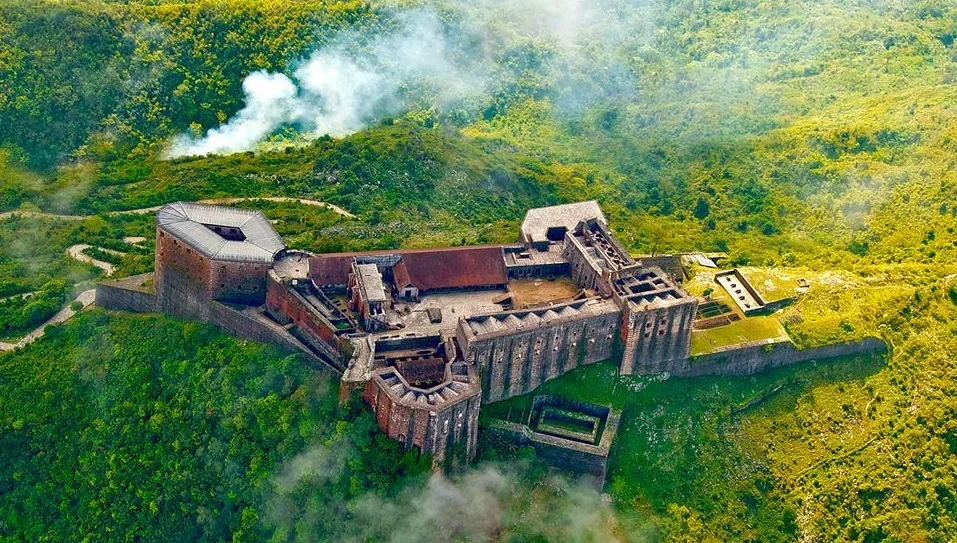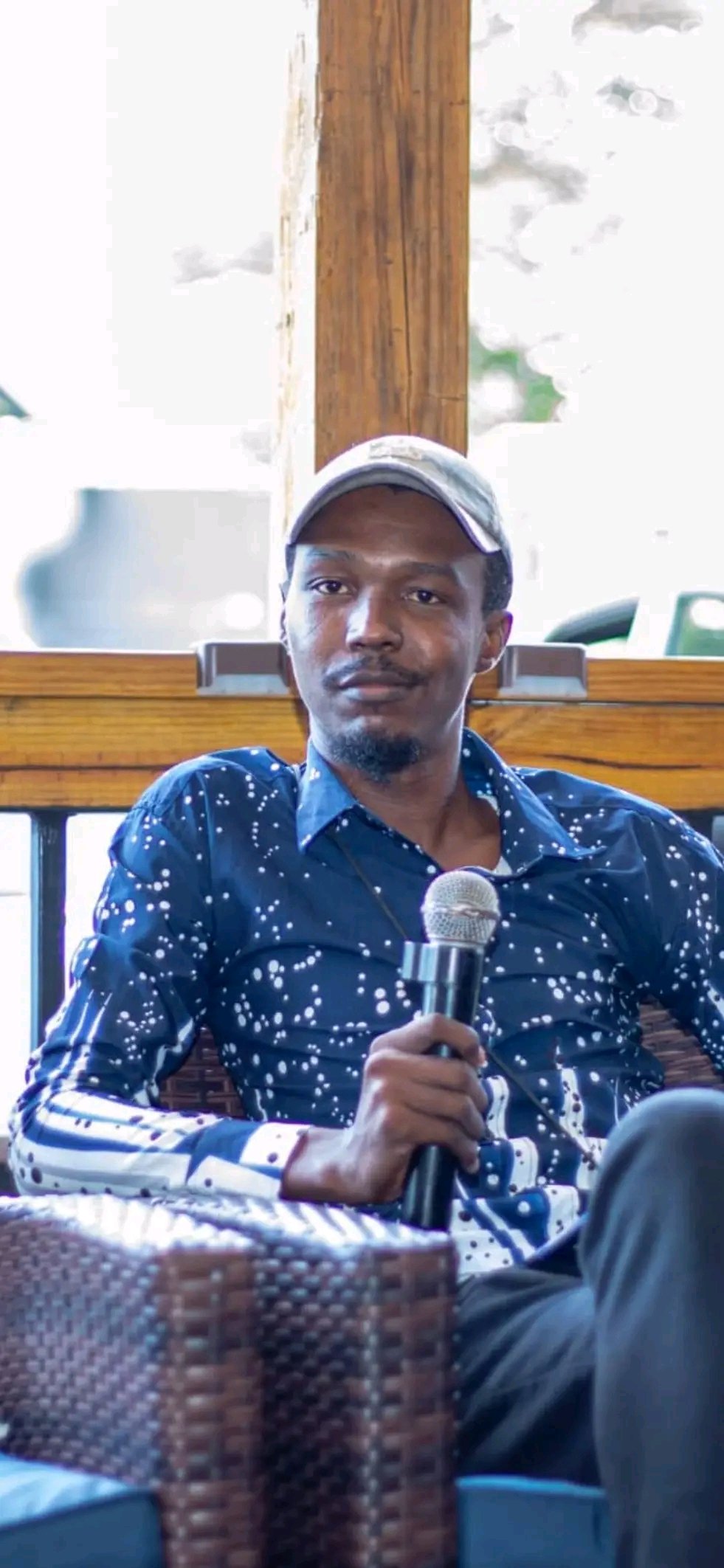La République des Apatrides?
Haïti fait la une des journaux partout dans le monde. Et ce n’est pas une bonne nouvelle. Les exploits des Haïtiens suscitent rarement autant d’intérêt, mais on a toujours tendance à pointer du doigt les dérives, faire couler de l’encre pour remuer les épines dans le pied, diffuser en boucle pour relayer le chaos qui sévit. Il n’y a guère de média pour faire amende honorable de la résilience de ce peuple aculé. Personne pour souligner la résistance farouche qui sert de carburant à ce peuple suspendu dans les gorges de la mort. Et si c’était dans une certaine mesure le seul moyen de parler de ce pays pour enfin attirer l’attention ?
On est le 26 juillet 2024. Les Jeux Olympiques viennent de commencer en France. La 33ème olympiade des temps modernes. Mine de rien, selon le Magazine Forbes, Haïti se classe parmi les dix nations avec le meilleur costume, pointant fièrement à la troisième place. Parallèlement, à des kilomètres de l’Hexagone, sur « L’Île du chaos savamment orchestré », les Haïtiens ne se rendent même pas compte à quel point cette reconnaissance frise l’ironie. Un paradoxe dont l’évocation, impopulaire, risque fortement de déplaire. Une image aérienne montre la ville de Paris dans toute sa splendeur, illuminée comme les portes du paradis, reflétant toute la grandeur de la France, toute la magnificence qu’elle a acquise au fil des siècles, sans omettre la contribution du sang versé par l’affreuse machine de la colonisation. Je ferme les yeux, je remonte le temps, je revois ce garçon livré à lui-même, perdu sans même le savoir, voué à l’échec sans même le comprendre. Et puis il y a les autres. Des garçons dans la même situation, ou pire. Au ban de la société, ils ne savent pas ce que la vie leur réserve. Ils forment l’élégante classe des marginalisés, en leur qualité de vauriens, bons à rien, et malandrins qui font entorse à l’éclat de la société. Ce contraste m’interpelle, et je me demande un instant si ceux qui vivent le chaos de l’extérieur saisissent l’enjeu et la réalité de la situation. D’ailleurs il me semble que même la majorité des Haïtiens vivant sur le territoire n’ont aucune notion des aspects fondamentaux et essentiels de la situation.
Un problème de dicton…
Zafè mouton pa zafè kabrit. Il fut un temps où de nombreux Haïtiens répétaient ce dicton, soit par ignorance ou par pur égoïsme, jusqu’à ce que la réalité les rattrape brutalement. Ils croyaient que le mal qui rongeait certains endroits du pays n’était propre qu’aux résidents de ces dits-lieux, et que cela ne pouvait, en aucun cas, s’étendre jusqu’à leurs portes. Haïti a une histoire qui s’est inscrite dans les annales de l’union, dans sa forme la plus pure. L’unité est donc un élément indissociable de l’identité haïtienne. C’est pourquoi, pour garder la cohérence qui pose les jalons de son histoire et préserver son identité, Haïti ne peut se défaire de ses démons tant que son peuple refuse de reconnaitre la quintessence sacrée de l’acte de solidarité. Ce problème de dicton, lorsqu’il devient un problème sociétal, tire toute son explication dans un autre dicton tout aussi populaire : sa w plante se li w ap rekòlte. Malheureusement, dans les bas-fonds de la ville, les recoins de la cité, les corridors des bidonvilles, les rues des quartiers populaires, ceux qui récoltent la tempête n’avaient jamais eu affaire au vent. Car leur horizon n’était qu’un ciel vouté et gris, au-dessus d’une mer crénelée où ne soufflait la moindre brise. Un tableau d’un ennui mortel. Le « Yakuza haïtien » ignorait que son destin était décidé dans de grandes réunions obscures. Des hommes sans état-d’âme décidaient de leur sort à coups de malversations et par amour effréné pour le pouvoir et le sang. Des plans machiavéliques étaient orchestrés alors que le Yakuza haïtien vivait dans la plus totale indifférence face au danger qui le guettait. Il ignorait son malheur, et ne le voyait point venir. Ainsi, cet être abstrait sans aucun droit allait devenir, sans le savoir, le pilier essentiel du pouvoir de ces êtres abjects sans foi ni loi. Or c’était eux, dès qu’on a mis le feu aux poudres, les criminels invétérés, les coupables, les sanguinaires qu’il fallait détruire à tout prix. Mais oui, à quel prix ?
Une affaire d’Etat…
Il n’y en a pas. Tout simplement. Faire mention d’Etat pour désigner une assemblée de marionnettes obéissant à leurs bourreaux est une insulte corsée envers Dessalines et Christophe. C’est un crachat abondant et gluant à la face de ces hommes qui avaient porté en eux l’idéal de la fierté et de la grandeur haïtienne. Mais puisqu’il faut en parler comme si c’était le cas, il convient donc de considérer le chaos comme une affaire d’Etat. Si les Conzé du pouvoir l’avaient voulu, aucune forme d’ingérence n’aurait pu rendre possible cette honteuse situation. Comment un peuple à l’histoire si fière peut-elle tomber si bas ? Il suffit de poser la question, et on se met à crier tous azimuts : « C’est de la faute de l’Occident ! »
Cela me rappelle vaguement les Kapos, durant la Seconde Guerre Mondiale, dans les camps de concentrations nazis où les Juifs étaient exterminés dans les fours crématoires. En Haïti, le même rapport subsiste entre les Haïtiens et leurs dirigeants. C’est d’une tristesse sans nom et d’une telle ironie que de voir ce pays qui avait le potentiel de devenir le premier paradis au monde, par son idéal de la justice et de la liberté, tomber entre les mains de la descendance des exécrables fils de Conzé.
Il est peut-être temps de se le rappeler finalement : Enbesil ki bay, sòt ki pa pran. Quel malheur ! Au regard de l’histoire, ce pays a tellement vu la dégaine d’imbéciles défiler dans ses rangs que l’on comprend mieux pourquoi on est devenu l’une des cibles favorites des artisans du chaos. Rayi chen an, di dan l blan, on peut tout reprocher à l’Occident, mais on doit bien reconnaitre qu’ils sont loin d’être idiots. Ils sont forts, les bougres, il faut le reconnaitre, et cela fait bien leur affaire face à des marionnettes aussi amorphes qui livrent le pays, sans oublier d’ajouter à cela leur dignité, leur humanité et leur intégrité. Tout un paquet bien garni bradé à la volée.
La raison du plus fort…
Il n’y a point d’Etat de droit dans certaines régions du pays, et il n’y a désormais qu’une seule raison à faire valoir car il n’y a désormais qu’une seule force. Ce que décident les enfants abandonnés et autrefois marginalisés est désormais la seule loi qui importe. A l’aube d’un éventuel assaut de balles pour en finir avec les fils de ceux qui font de la vie leur combat, parfaits boucs-émissaires d’une situation à moult rebondissements, les enfants de ceux qui ont transformé la terre des Héros en enfer se caressent les burnes dans les meilleures universités chez Son Excellence l’Occident ou s’empiffrent des meilleures parts du gâteau, cloîtrés dans des tours gardées par les mêmes fils de la classe prolétarienne assujettie... Finalement, même le chien dans la parabole du centurion était plus chanceux car lui au moins avait droit aux miettes de pain tombées sous la table. Et nous autres, aculés dans les quartiers populaires, entassés dans les bidonvilles, pris au piège avec les Yakuzas haïtiens dans les territoires livrés (ou perdus, selon l’usage), nous nous demandons encore quel mérite accorder à ceux-là qui faisaient croire aux fils d’autrui que leur avenir se profilait derrière les barricades qui entravaient la marche du pays.
En somme, la mascarade continue, et on continue à se voiler la face, ayant pourtant le regard cinglant de la réalité planté dans le nôtre. On a célébré l’ « heureux exploit » de figurer parmi les dix nations les mieux sapés des Jeux Olympiques au moment où Haïti figure parmi les premiers pays les plus saqués au monde, et les plus sales.














































































